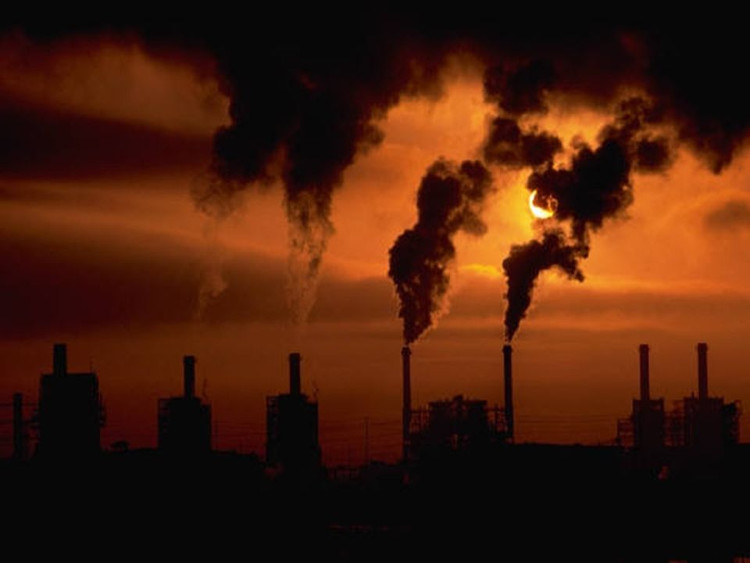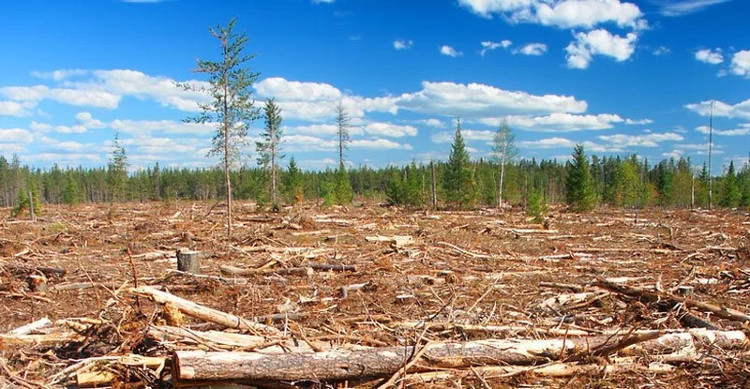Human impact on nature is decreasing
It seems that people are gradually increasing the efficiency of using natural resources, instead of abusing them.
Nature has been severely devastated by humans - this has nothing to discuss.
However, according to the researchers, although the harm from human activities to the planet is still increasing, the growth rate is gradually cooling down, at a rate slower than the rate of development. economic and world population growth.
This gives us a glimmer of hope, that mankind is gradually managing what we have taken from nature.

Humans are trying to manage what they have taken from nature.
According to Oscar Venter from Northern British Columbia University (Canada) - the leader of the research team: "Seeing the impact on nature tends to be more encouraging than the development of the economy and the world population. This shows that we are using natural resources more effectively. "
Venter's team combined with eight other universities around the world have used satellite data and practical surveys on human impact on the environment during the period 1993 - 2009.
During this period, the world population increased by 23%, while the economy grew by 153%. In contrast, emissions from human activity increased by only 9%.

Nature has been severely destroyed by humans.
Of course, 9% is not small, but at least it is smaller than population and economic growth.
Experts believe that this result stems from the theory of Environmental Street Kuznets - arguing that the environmental impact is the most terrible when the industry is still young, but will cool down gradually as the economy grows further.
However, although the level of impact on nature has increased slowly, the overall picture of what humans have done is still very . heartbreaking.
According to James Watson of the University of Queensland (Australia): "The data shows that three-quarters of our planets have been altered, and 97% of the most abundant species are the same. This is like a crisis about biodiversity ".

3/4 of our planets have been changed.
More specifically, in 1993 about 27% of the world's land had no trace of humanity. However, after only 16 years, 23 million km 2 of these were invaded.
"Humans are the most greedy creatures on the planet. Using land, hunting and other activities have helped us invade up to three-quarters of the ground," Watson said .
Anyway, we should note this human effort on the effectiveness of natural resource use.
The research is published on the Nature Communications page.
- Ranking hot spots of human impact on coastal areas
- New research on the impact of the sun
- See human anatomy, through a unique set of floral images
- Video: Earth's change caused by humans in three decades
- Flower newspaper - the fastest animal on the ground
- Biological rhythm and stroke
- The ocean is vast but most of the area has been invaded by humans.
- Controversy about the intellectual decline of humanity
- Find the main culprit causing the glaciers to melt
- Impact Earth - Meteorite Impact Simulation
- White sharks endangered
- Beauty of birds in the South Central Highlands
 Is the magnetic North Pole shift dangerous to humanity?
Is the magnetic North Pole shift dangerous to humanity? Washington legalizes the recycling of human bodies into fertilizer
Washington legalizes the recycling of human bodies into fertilizer Lightning stone - the mysterious guest
Lightning stone - the mysterious guest Stunned by the mysterious sunset, strange appearance
Stunned by the mysterious sunset, strange appearance